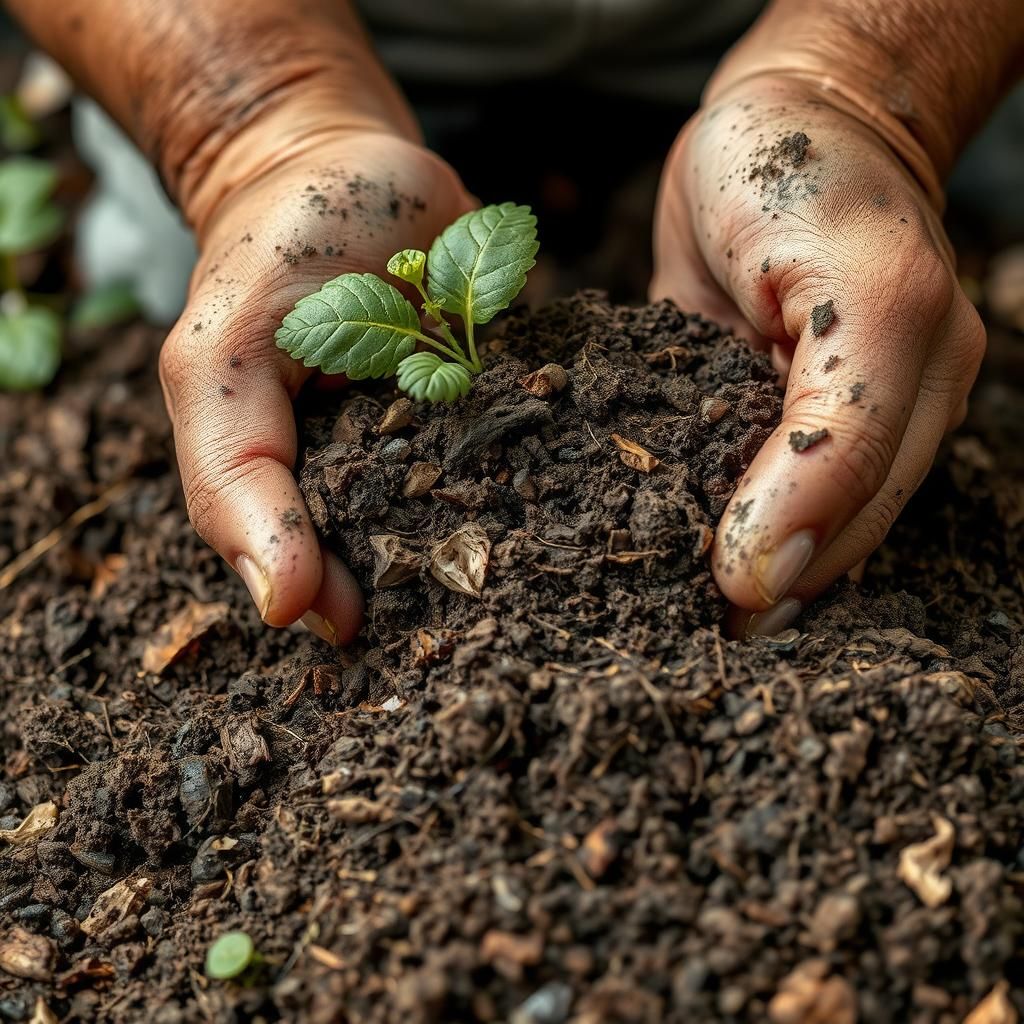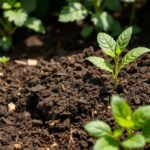What Will Happen If You Left the Compost Too Long? Discover the Consequences and Solutions

Composting is a valuable practice for recycling organic waste and enriching soil. However, leaving compost to decompose for too long can lead to unforeseen consequences that may impact both the environment and your gardening efforts. From foul odors and pest infestations to nutrient depletion, the challenges of overripe compost can be significant. This article explores the potential problems associated with neglected compost piles and offers practical solutions to restore balance. By understanding the repercussions of delayed compost management, you can ensure a healthier composting process and maximize the benefits for your garden.
What Happens If You Leave Compost Too Long?
Leaving compost for an extended period can lead to several consequences that affect its quality and usability. As the organic matter continues to break down, it may reach a point of over-composting, where the pile becomes overly acidic or anaerobic, resulting in foul odors and an unpleasant texture. If left unattended, the decomposition process may slow significantly, leading to the growth of molds and unwanted pests. Additionally, the nutrients within the compost can become depleted or lost, making it less effective when eventually applied to plants. It's vital to monitor the composting process regularly to achieve the ideal balance for healthy plants.
Decomposition Process Slowing Down
When compost is left too long, the decomposition process can slow dramatically due to an imbalance of materials. As the compost becomes overly matured, beneficial microorganisms may die off, causing the breakdown of remaining materials to take significantly longer. This sluggish decomposition can hinder the availability of essential nutrients for plants, making it crucial to manage the compost pile actively.
Unpleasant Odors
Extended periods of composting can result in the development of unpleasant odors. When compost becomes anaerobic, a situation often caused by excess moisture and insufficient aeration, it leads to the release of foul-smelling gases. These odors can be a sign that the compost is not decomposing correctly, indicating the need for intervention to restore proper airflow and balance moisture levels.
Growth of Molds and Pests
Left too long, compost can attract unwanted pests and promote the growth of molds. While certain molds are harmless and can be beneficial in small amounts, an overabundance can indicate that the compost is not breaking down effectively. Pests, such as fruit flies or rodents, may be drawn to the compost pile in search of food, complicating the composting process and potentially introducing pathogens.
See also:
Nutrient Depletion
If compost is left to mature for too long, the nutrient levels may begin to decline. Vital components like nitrogen can become less accessible over time, diminishing the compost's effectiveness as a fertilizer. To ensure that compost retains its nutrient-rich properties, it is essential to utilize it within a reasonable timeframe and turn the pile regularly to reintroduce air.
Texture and Structure Changes
An overly aged compost pile may experience significant changes in texture and structure. The breakdown of materials can create a compacted, clumpy mass that is not conducive to plant growth. Ideal compost should have a crumbly texture that promotes aeration and drainage. If the compost is allowed to sit too long without use, it can lose this desirable quality, making it more challenging to incorporate into gardening practices.
| Consequences | Description |
|---|---|
| Slowed Decomposition | Decomposition can stall, leading to less effective compost. |
| Odors | Foul smells from anaerobic conditions indicate problems. |
| Molds and Pests | Unwanted growth of molds and attraction of pests can occur. |
| Nutrient Loss | Nutrient levels may decline, reducing fertilization potential. |
| Texture Changes | Compact, clumpy compost can hinder effective usage in gardening. |
Understanding the Dangers of Over-Aged Compost
Leaving your compost too long can lead to serious issues that affect both the quality of the compost and the surrounding environment. As the decomposition process progresses, the aerobic conditions may shift to anaerobic, leading to a foul odor and the production of harmful gases like methane. Additionally, over-aged compost could harbor pests and diseases that can harm plants when applied to your garden. Managing your compost properly, including monitoring the moisture and turning it regularly, is essential to prevent these negative consequences and produce nutrient-rich compost.
The Impact of Odors in Over-Aged Compost
One of the most noticeable effects of leaving compost for too long is the development of unpleasant smells. When compost becomes anaerobic, it produces volatile compounds that emit strong odors, often resembling rotten eggs or sour milk. These odors can not only be a nuisance for gardeners but can also indicate that the compost has become less effective as a soil amendment. Addressing this issue requires turning the compost and ensuring proper aeration to restore a healthy balance.
Risk of Pests and Diseases
Over time, compost that sits too long can attract unwanted pests such as fruit flies, rodents, and even raccoons drawn by the stench and decomposing organic matter. Furthermore, the composting process may not fully kill off certain pathogens or weed seeds, allowing them to thrive in your garden when applied. To combat these risks, it's crucial to monitor your compost's condition and maintain a proper temperature to ensure that harmful organisms are effectively eliminated.
See also:
Effects on Soil Quality
Using compost that has been left to rot can significantly affect the quality of your soil. While fresh compost is rich in nutrients, over-aged compost can lose its value, as the nutrients may have leached away or been altered into forms that are less beneficial for plants. Soil that is treated with poor-quality compost may not support healthy plant growth, leading to deficiencies and poor crop yields. It's essential to utilize compost within an appropriate timeframe to maximize its benefits for your garden.
Environmental Consequences of Neglecting Compost
Leaving compost unattended can create several environmental issues, from attracting wildlife that disrupts local ecosystems to contributing to greenhouse gas emissions. When compost ferments anaerobically, it produces methane, a potent greenhouse gas that significantly impacts climate change. To minimize these consequences, gardeners should aim for regular maintenance of their compost piles and prompt usage to ensure that organic waste is recycled effectively and sustainably.
Solutions for Reviving Over-Aged Compost
If you find yourself with over-aged compost, there are several solutions to revive it. First, breaking up clumps can help reintroduce oxygen into the pile, combating anaerobic conditions. Introducing a mix of new green materials (like grass clippings) can spark activity among microorganisms, reinvigorating the composting process. Lastly, adjusting the moisture level and turning the pile regularly can expedite decomposition, allowing you to reclaim valuable compost for your gardening needs.
Questions from Our Readers
What happens to compost if left too long?
If compost is left for too long, it can become overly decomposed, resulting in a substance that resembles soil rather than traditional compost. This can lead to a loss of nutrient value, as the organisms break down the materials completely, making it less beneficial for plants.
Can compost go bad if it's not used in time?
Yes, compost can go bad if not used in time, often due to anaerobic conditions causing foul odors and a mushy texture. This can attract pests and make it unsuitable for garden use, requiring additional efforts to revitalize or reprocess it.
See also:
What are the signs that compost has been left too long?
Signs that compost has been left too long include a foul smell, overly wet or soupy texture, and a lack of recognizable organic materials. Additionally, if it becomes compacted and does not crumble, it may indicate that the composting process has stagnated.
Is it possible to rejuvenate old compost?
Yes, it is possible to rejuvenate old compost by adding aeration through turning it or mixing with fresh green materials to introduce new microorganisms. This can help restore its texture and nutrient content, making it usable again for your garden.

If you want to read more articles like What Will Happen If You Left the Compost Too Long? Discover the Consequences and Solutions, we recommend you check out our Compost category.
Leave a Reply
Related Articles